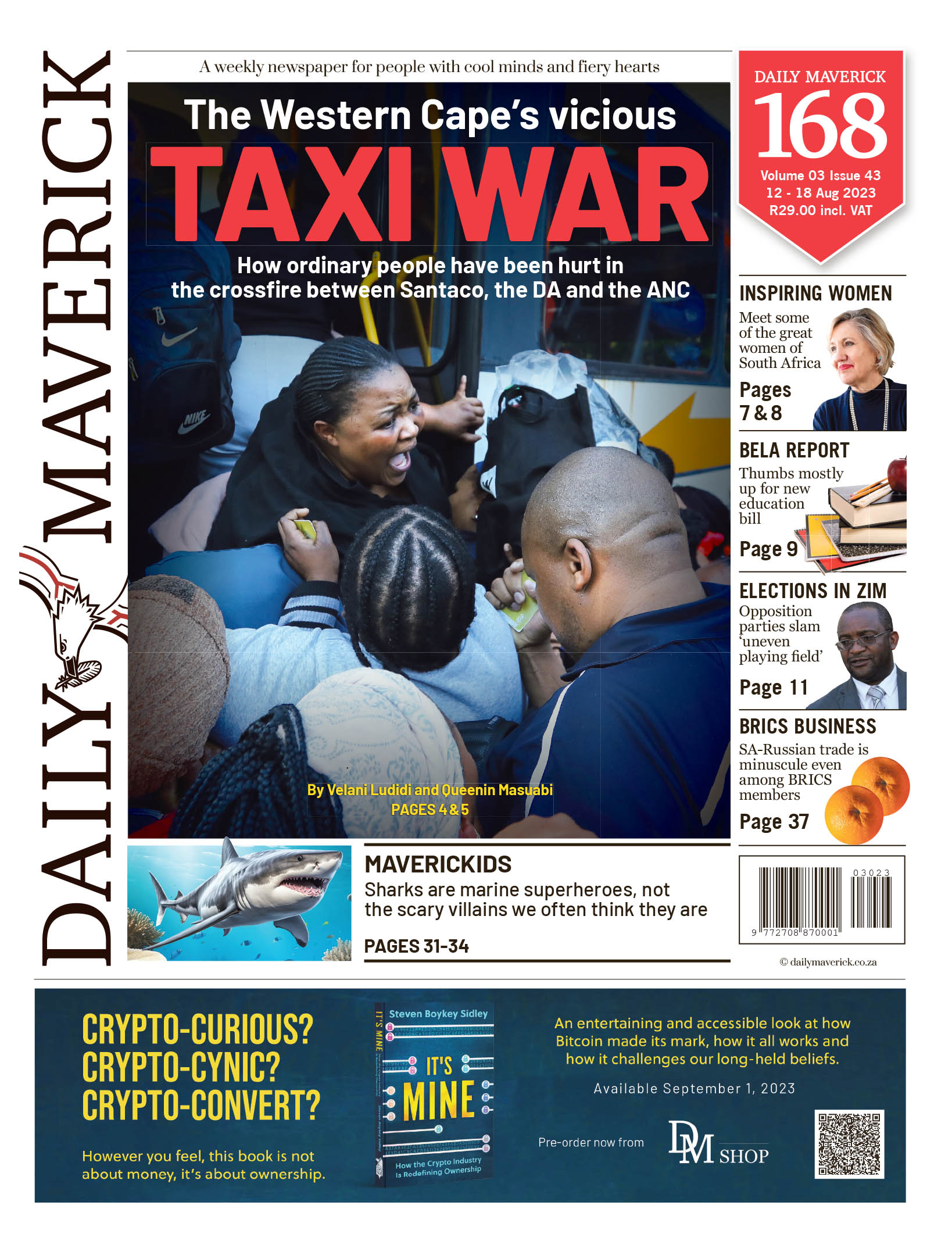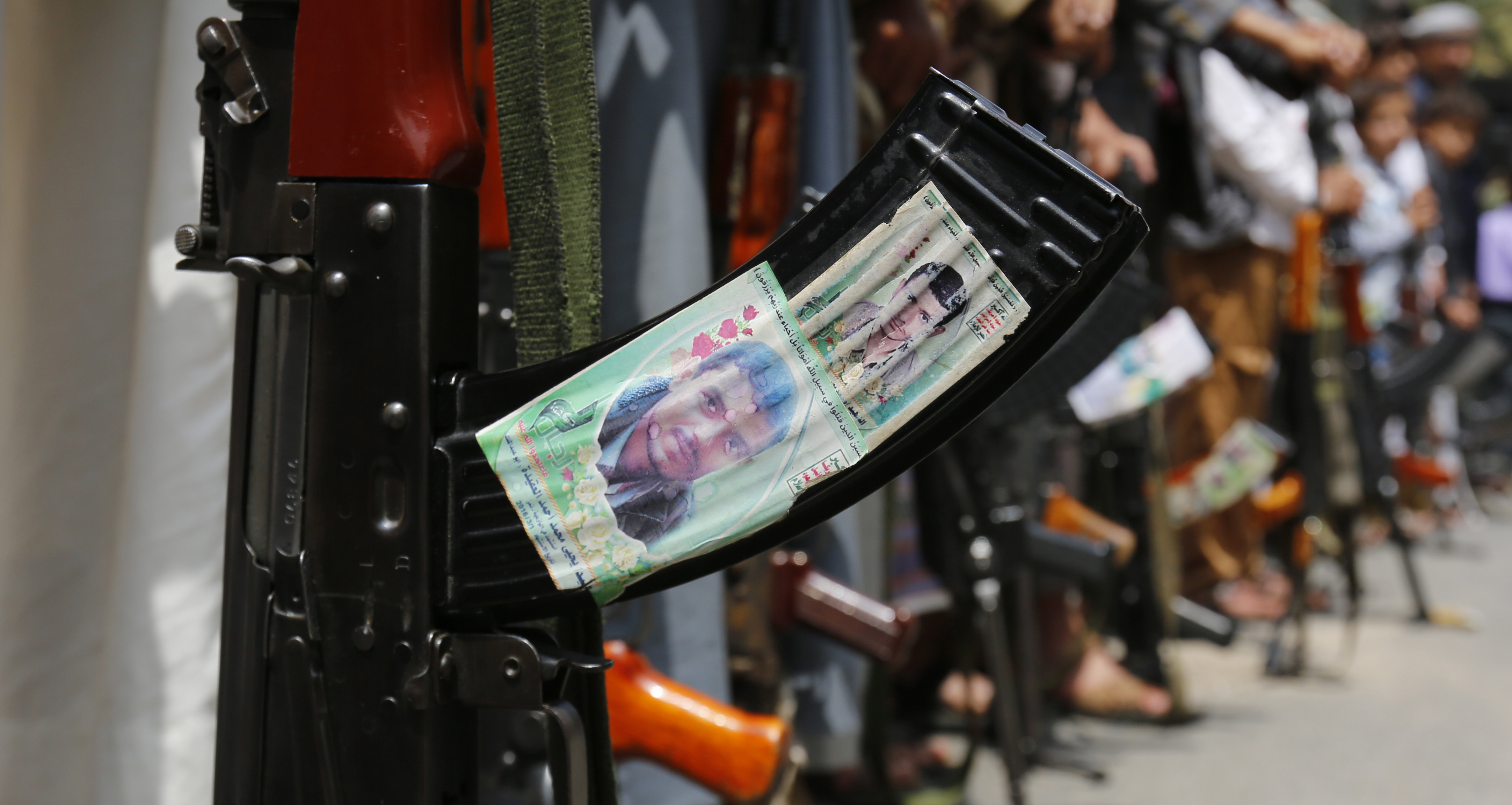South Africa has approved arms exports worth about R9.2-billion to Saudi Arabia and the United Arab Emirates (UAE) since 2015, when the two countries began their military invasion of Yemen alongside seven other nations.
This is according to combined annual reports from the National Conventional Arms Control Committee (NCACC), which South African companies need to go through to get a permit to export weapons and other military products.
Yemen has been in turmoil since late in 2014, when militants overthrew the government. In response, a coalition of countries led by Saudi Arabia and the UAE launched a scorched-earth military campaign in support of the ousted president, bombing civilians, hospitals and schools. They also blockaded enemy-held areas, causing mass starvation and disease outbreaks.
And though a shaky informal truce has calmed some of the fighting since last year, Yemen has been left to suffer one of the world’s worst humanitarian crises.
Read more in Daily Maverick: Exposed: South Africa’s role in Yemeni civil conflict’s humanitarian crisis
A report by the NGO Open Secrets argues that South Africa contributed to this. For instance, in August 2018, armed forces attacked a fish market in the Yemeni port city of Hodeidah and then fired on the hospital and first responders treating the victims, killing scores of civilians.
A forensic investigation revealed that the Saudi-UAE-led coalition was likely responsible and the mortars they used appeared to have been built by the South Africa-based Rheinmetall Denel, which is 49% owned by South Africa’s state-run arms manufacturer.
Consequently, in 2021, the Southern African Litigation Centre (SALC) and Open Secrets launched a high court application seeking to review and set aside the NCACC’s decision to continually authorise weapons sales to Saudi Arabia and the UAE.
The NCACC is required by law to avoid granting arms export permits if the weapons will be used to escalate conflicts, or if they will be sent to governments that systematically violate human rights.
Following the application, the court ordered the NCACC to serve notice to all companies that hold (or had applied for) permits to export arms to Saudi Arabia or the UAE so that they may join the proceedings.
Since then, nine companies have come forward to oppose the application, according to Open Secrets’ head of investigations, Michael Marchant. They include Rheinmetall Denel as well as some of South Africa’s leading private arms companies such as Paramount Land Systems. Neither Rheinmetall Denel nor Paramount responded to requests for comment.
The companies have argued that many details of the NCACC-approved arms transactions may be commercially confidential and therefore should not be part of the public court record, says Marchant, causing further delays. Negotiations are apparently continuing to resolve this matter before the judicial review can begin.
In the meantime, local arms companies have continued to cash in on Saudi Arabia and the UAE’s demand for weapons. In 2022, the NCACC approved sending bombs, shells and other military items worth R614-million to the UAE.
Some in the government have been keen to help. In February, the Department of Trade, Industry and Competition (DTIC) helped 11 arms companies to attend a UAE-based defence exhibition to market their products. The deputy trade minister, Nomalungelo Gina, remarked that the Middle East was “a strategic and important market for South Africa’s defence products and services” and that the UAE is “key to South Africa’s export strategy in the region”.
Weapons exports to Saudi Arabia have slowed considerably, from more than R500-million in 2020 to just R12-million last year, as the NCACC delayed authorisation for arms worth hundreds of millions of rands to be shipped to the kingdom. Some arms exports to the UAE, Turkey and Poland also faced delays last year, although the NCACC hasn’t rejected any applications since 2018, according to its annual reports.
Nonetheless, this hasn’t stopped arms companies from bolstering Saudi Arabia’s military capabilities; instead, they’re simply helping it to make its own weapons.
Saudi Arabia is the world’s second-largest arms importer, and the US, Germany, Italy and the Netherlands have all imposed restrictions on selling weapons to it at various points in recent years over its conduct in Yemen. But this may pose less of a problem in the future as the kingdom moves to develop its own weapons manufacturing sector, aiming to produce half of all its arms by 2030. South African companies have proved useful in this process.
Last year, private arms corporation Milkor received a licence from the Saudi ministry of investment to develop a military equipment factory in the kingdom, while in 2019, electronics company Etion Create said it was engaging with stakeholders in the Saudi defence sector. It noted that the Saudis “are also relying on several other South African companies to advance the development of its defence sector”. DM
This story first appeared in our weekly Daily Maverick 168 newspaper, which is available countrywide for R29.

DM168
South Africa still arming Saudis and UAE despite humanitarian crisis in Yemen





